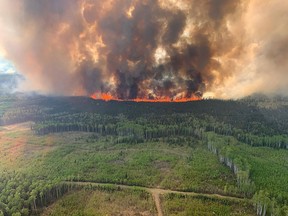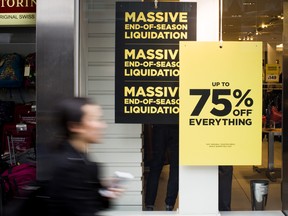How the Devastation of Wildfires Ripples Through the Whole Economy
By the first week of June, hundreds of fires had already engulfed Canada, darkening the sky and sending fine particulate matter into the air. The devastating effects of these wildfires extend far beyond the immediate destruction they cause to homes, businesses, and communities.
The Economic Impacts of Wildfires
In a recent episode of Down to Business, we examined the economic impacts of wildfires, exploring the less-obvious ripple consequences of these disasters. Anson Ho, an assistant professor at Toronto Metropolitan University’s Ted Rogers School of Management, joined us to discuss his research on the 2016 Fort McMurray wildfire and its impact on homeowners’ ability to pay their mortgages.
The Impact on Homeowners
Ho’s paper co-authored with other researchers found that the Fort McMurray wildfire had a significant impact on the financial stability of many homeowners. The fire forced thousands of people to evacuate, leaving behind homes and businesses in ruins. Many of these individuals struggled to recover financially, as they faced significant losses due to property damage, displacement, and loss of income.
The Ripple Effect
But the impact of wildfires doesn’t stop at individual homeowners. The economic effects of these disasters ripple through entire communities and even broader regions. For example, when a wildfire damages critical infrastructure such as power grids or water treatment plants, it can have far-reaching consequences for local businesses, residents, and emergency responders.
The Importance of Resilience
Wildfires pose significant challenges to the resilience of communities, making them more vulnerable to economic shocks. According to Camille Ouellet Dalaire, an assistant professor at the school of science and the environment at Memorial University of Newfoundland, people are increasingly interconnected with their ecological surroundings. "When we experience a disaster like a wildfire," she explains, "it can have long-lasting effects on our relationships with nature and each other."
The Economic Benefits of Mitigation
While wildfires pose significant economic challenges, they also present opportunities for mitigation and resilience-building. Investing in fire prevention measures such as prescribed burning, forest thinning, and early warning systems can help reduce the likelihood and impact of future disasters.
A Call to Action
As we continue to experience increasingly frequent and severe wildfires, it’s essential that policymakers, businesses, and individuals prioritize disaster preparedness and mitigation efforts. By working together to build more resilient communities, we can minimize the devastating economic impacts of these disasters and create a safer, more sustainable future for all.
The Future of Wildfire Mitigation
In addition to investing in fire prevention measures, there are several strategies that can help mitigate the economic effects of wildfires:
- Early warning systems: Developing and implementing effective early warning systems can help reduce the risk of property damage and loss of life.
- Community planning: Engaging communities in planning efforts can help ensure that disaster preparedness and response plans are tailored to local needs and priorities.
- Economic incentives: Providing economic incentives for landowners to adopt fire-resistant practices, such as prescribed burning or forest thinning, can encourage more proactive wildfire management.
Conclusion
The devastating effects of wildfires extend far beyond the immediate destruction they cause. They pose significant challenges to individual homeowners, communities, and entire regions. However, by prioritizing disaster preparedness and mitigation efforts, we can minimize the economic impacts of these disasters and create a safer, more sustainable future for all.











